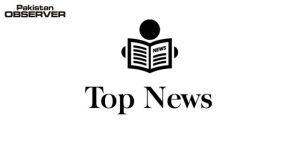Imran Yaqub Dhillon
Special correspondent
New York
The President of the Economic and Social Council (ECOSOC), Pakistani Ambassador Munir Akram, said that the key to addressing the three challenges that the world faces — the Coronavirus pandemic, the realization of the 2030 Agenda and the Sustainable Development Goals (SDGs) and the existential threat of climate catastrophe — was to mobilize adequate financing to deal with each one of them.
“This will be the first priority for ECOSOC during the Pakistan’s presidency,” he said in his closing remarks to U.N.’s High-Level Panel on International Financial Accountability, Transparency and Integrity (FACTI), which was formed in MarchFAC to help address the financing gap for implementing the SDGs by 2030.
The high-level panel, which met virtually Thursday, was addressed among others by Pakistan Prim Minister Imran Khan.
“Such financing will have to be mobilized at both the national and international levels,” Ambassador Akram said, while pointing out that the ability of developing countries to mobilize domestic finance was constrained, and further diminished due to the grave impact of the COVID crisis.
In its interim Report, the FACTI Panel identified the huge resources which the developing countries lose due to illicit financial flows as a result of corruption, bribery, crimes and tax evasion.
“They (developing countries) could not afford to lose these resources in the best of times,” the ECOSOC chief said, adding that . they certainly could not afford following the COVID crisis which has triggered major economic contractions in most developing countries.
“To allow illicit flows to continue, at this time, would be nothing short of criminal,” Ambassador Akram declared.
In this regard, he welcomed the initiative to set up the FACTI panel by his predecessor, Ambassador Mona Juulof Norway and the former President of the General Assembly Ambassador, Tijani Muhammad Bande of Nigeria.
“Illicit Financial Flows stifle opportunities, deny vulnerable people access to basic infrastructure, services, and condemn them to a life of inequality and poverty, the ECOSOC chief said.
“These flows are a key contributory factor for the economic under performance of developing countries and a major obstacle to poverty eradication.”
The estimates of illicit financial flows in the interim report of the Panel, he said, were “appalling”, underscoring the urgency and scale of the challenge that must be addressed in order to halt and reverse such flows. “Financial accountability, transparency, and integrity is a global problem and requires global solutions,” Ambassador Akram said.









